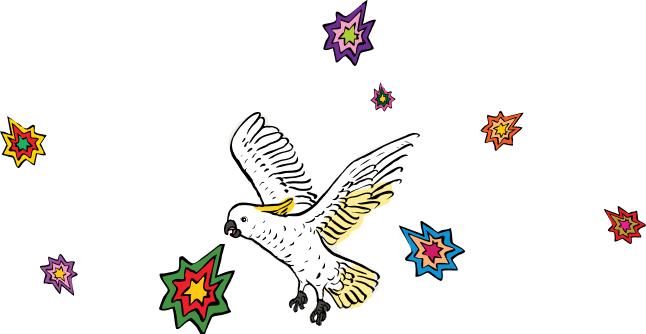Reviewed by: Upside Adelaide
Greg Fleet and Ian Darling’s show, The Twins, which has just started a lengthy 2021 Adelaide Fringe run in The Studio at the Holden Street Theatres proves to be, at times, an affecting autobiographical tragi-comic confessional rumination on ageing and mateship, whilst also being an occasionally uncomfortable and braggadocious acclamation of the fame and privilege that life has afforded them both – Fleet as a successful actor, comedian and author; and Darling as an accomplished multiple award-winning documentary film-maker.
The Twins is, unapologetically, a perplexing piece of theatre – not least because it often consciously draws attention to its own flaws and limitations and, in doing so, proactively defuses most of the criticisms it evokes along the way. This was one of those times where I found myself wishing I had paid more attention in university lectures to the concept of the ‘unreliable narrative voice’, as this show is certainly compelling, but hard to like or trust.
A cursory glance at both performers’ online biographies confirms that much of the material in the script is filled with seemingly indisputable ‘truths’ about both of their lives. These ‘facts’, however, are presented within a fictional, dramatic framework manipulated in such a way that the audience is often challenged directly, in true Brechtian tradition, to question the trustworthiness of the revelations we get to hear as the two old friends review and reassess all that has gone before in their lives. The play is frequently raw in its confessional quality, and the sudden switching from periods of close nostalgic camaraderie to explosive flashes of mistrust, or resurfacing hurt, or to internal and brutally honest insights openly offered into their feelings of self-doubt and insecurity that they have consistently hidden from each other – are disconcerting and, at times, disorienting.
The ‘narrative’ is broken into sections by the interruption of brief snatches of well-known Australian rock songs, mostly by now long-dead artists, and this helps to create a sense of urgency and poignancy to the exchanges. These musical bites are used diegetically in some places, but at other times not. Sometimes the lyrics of the chosen songs underpin the current action, whilst at other times they are purely used to evoke a mood and a clear sense of the passing of time. Most of the songs work in their context, but some occasionally seem narratively discordant and misplaced.
Too often the ‘acting’ of both performers comes across as clunky and unconvincing, yet confoundingly, this may or may not be deliberate, as this is most noticeable at those moments where the ‘play’ seems to deliver its most profound, universal truths about the impact that our own decisions have on those we hold most dear.
The scenario centres around these two old friends, who, by arrangement, are meeting up, possibly at Darling’s Kangaroo Valley arts lab, to workshop a possible future production of Shakespeare’s play The Comedy Of Errors – a play they had both triumphantly appeared in during their final year at secondary school at Geelong Grammar forty years earlier.
This now rarely performed Shakespearean comedy concerned the complicated travails of two sets of identical twins and the play’s main action revolves around multiple instances of mistaken identity, which predictably result in darkly comic chaos and confusion.
This play obviously contains both an emotional and psychological resonance for both men as they confess to both having endured periods in their lives where they had become lost within their own ‘mistaken identities’ – compromised, and seemingly locked out of ever achieving their own dreams and ambitions. It’s a state of being for which many in the audience will readily find empathy.
The Twins could be charged with being a little too Melbourne-centric in places. Occasionally it is overly reliant on knowledge of the rarified world of Victorian private schools, and not everyone outside of Victoria would be cognisant of the significant differences between the inner suburbs of Toorak and Prahran, for instance, nor would they necessarily understand The Merry Wives Of Windsor joke.
During the performance I wrestled with the question of whether I was enjoying the experience of watching it. At times the answer was definitely no, as it felt far too self-reverential; yet there were frequent moments of surprising self-recognition and more than a few epiphanies, forcing a reappraisal of my initial gut reaction, and of some of my own life decisions too.
I left the theatre perplexed, going over many of the questions the performers raised during the show. I drove home perplexed, realising that, despite my initial reservations about The Twins and what I had taken to be the egotistical self-aggrandisement of its two stars, it had successfully communicated its intended messages about the conundrum of ageing, the value of friendship and the importance of trust.
It is the purpose and function of good theatre to force an audience into confronting and considering perspectives other than those that serve to construct our own comfort zones. As I found that I was still mulling over the issues in this play when I got home, and am still doing so now, I think that The Twins achieves its place listed under the ‘good theatre’ banner.




